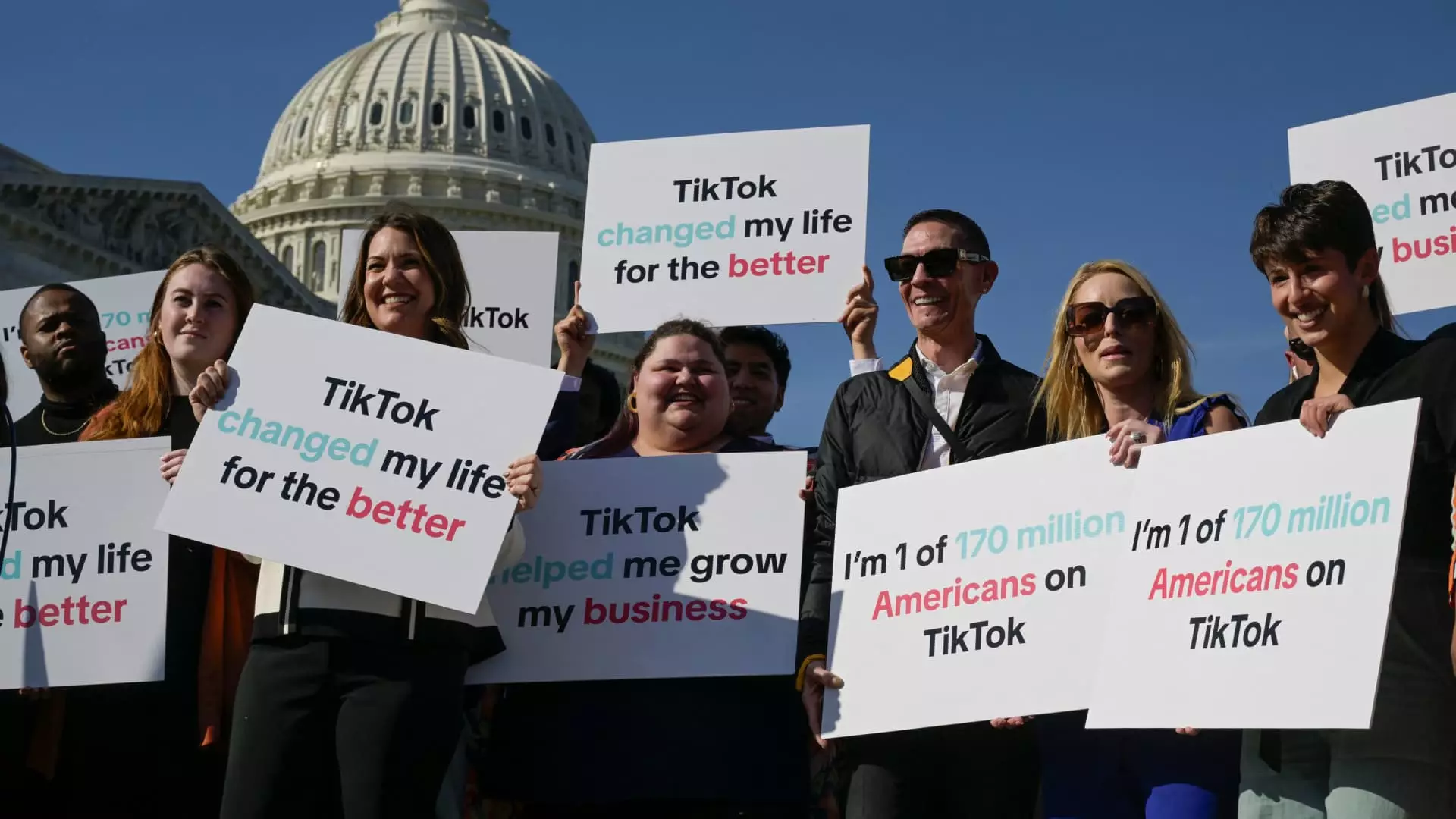As the digital landscape evolves, platforms like TikTok have transformed the way millions communicate, express themselves, and even earn a livelihood. On an unassuming Friday, the Supreme Court will tackle a pivotal case that may decide the fate of TikTok in the United States. This case presents a complex intersection of free speech rights, national security concerns, and governmental authority. The outcome could signal either a robust defense of digital platforms as spaces for expression or validate unprecedented governmental intervention in online discourse.
The case, precipitated by the Protecting Americans from Foreign Adversary Controlled Applications Act, underscores the urgent concerns regarding data privacy and foreign influence. It raises critical questions about whether the law’s implications infringe upon the First Amendment rights of the app’s 115 million American users. If the Supreme Court chooses to uphold the ban, users may find themselves stripped of access to a platform that has become integral to their social and professional lives.
Should the court not deliver a ruling before the stipulated January 19 deadline, the possibility of an outright TikTok ban looms large. This would initiate a host of dire consequences for content creators who rely on the platform for their income. With a significant number of Americans utilizing TikTok for content creation, the abrupt withdrawal of such a tool would force many to scramble for alternative platforms, primarily YouTube or Instagram, to sustain their livelihoods.
Legal analysts suggest that even if the app remains installed on a user’s device post-ban, functionalities like updates or redownloading would cease, effectively stunting the app’s usability. George Wang from the Knight First Amendment Institute articulates the broader implications of this potential ban, positing that even a temporary shutdown could have damaging impacts on the larger ecosystem of digital content sharing, thus setting a precarious precedent for the regulation of speech in online spaces.
The legal battle incorporates a multifaceted dialogue between the government and ByteDance, TikTok’s parent company. With Attorney General Merrick Garland leading the charge, the government presents stark arguments around national security, emphasizing that TikTok remains a potential tool for espionage and covert influence due to its Chinese ownership. This framing casts ByteDance as a national threat rather than a mere corporate entity.
Notably, the case has garnered diverse support through numerous amicus briefs from high-profile organizations and public figures, including former President Donald Trump. Though Trump’s brief abstains from taking a definitive stance, it appeals for a political solution that allows TikTok to continue operating, reflecting its substantial role in contemporary political campaigns and youth outreach.
With political figures recognizing TikTok as a vital communication channel—particularly for younger voters—the stakes are even higher. Trump’s previous engagements on the platform further underscore its dual role as both a casual social network and a potent political tool.
Experts like Erwin Chemerinsky, the dean of Berkeley Law, argue that this case is fundamentally unprecedented in its implications. By potentially validating government authority to ban specific platforms used for free speech, it could pave the way for further governmental overreach in regulating digital expression. If TikTok’s ban is upheld, it raises dire concerns for the future of other platforms that may similarly become targets based on their foreign affiliations or perceived threats to national security.
The Supreme Court’s decision will not only dictate the future of TikTok but may also serve as a barometer for how America navigates the complex interplay of online freedom and real-world security concerns. As we anticipate the court’s ruling, it becomes increasingly evident that the ramifications extend far beyond TikTok; they could redefine the very contours of free speech in the digital age.

